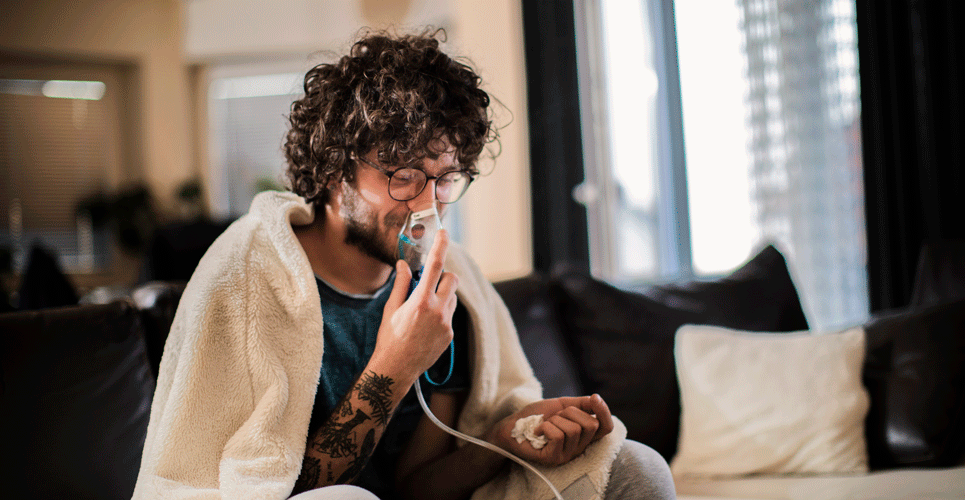Using risankizumab as a treatment for patients with severe asthma was found to be of no benefit and reduced the time to asthma worsening.
Risankizumab use in patients with severe asthma resulted in an earlier worsening of asthma symptoms compared to placebo. This was the conclusion of a randomised trial by a team from the Institute for Lung Health, Department of Respiratory Sciences, University of Leicester, Leicester, UK.
Inflammation and a narrowing of the airways are the primary cause of asthma and this manifests clinically as a cough, wheeze, chest tightness and shortness of breath.
Asthma is a very common disease and data from 2019 suggest that the condition affects around 262 million people and led to 461000 deaths. Moreover, the prevalence of severe asthma has been estimated from a Dutch study to be 3.6% or 10.4 patients per 10,000.
The cytokine, interleukin-23 (IL-23, produced by T-helper 17 cells, has been implicated in the development of allergic asthma and in fact, serum IL-23 levels have been found to elevated in asthmatic children and therefore could be used as a marker of bronchial function impairment.
The monoclonal antibody risankizumab, binds to and inhibits IL-23 and this action has been found to be important in the treatment of psoriasis and Crohn’s disease and this could benefit patients with severe asthma although it has not been studied.
For the present study, the Leicester researchers conducted a phase 2a, randomised, double-blind trial to assess the efficacy and safety of risankizumab in adults with severe, persistent asthma.
Patients aged 18 to 75 years and who were currently using medium to high-dose inhaled glucocorticoids with at least one additional controller medications and had a history of one or two severe asthma exacerbations in the previous 12 months, were included in the study.
Individuals were randomised 1:1 to receive either 90 mg risankizumab or placebo, subcutaneously, once every four weeks for a total of 24 weeks. The primary endpoint was the time to the first asthma worsening, which was defined in several different ways, including a deterioration from baseline on two or more consecutive days or an 50% increase in the number of rescue medication puffs in a 24-hour period.
Findings
A total of 213 patients were analysed, 105 with a mean age of 54 years (65.7% female) given risankizumab. The median time to the first asthma worsening was 40 days in the risankizumab group and 86 days in the placebo arm (hazard ratio, HR = 1.46, 95% CI 1.05 – 2.04, p = 0.03). In addition, the hazard ratio for the time to the first severe exacerbation was 1.18 (95% CI 0.76 – 1.83) and hence not significantly different to placebo.
The researchers also examined sputum gene expression and found that in patients using risankizumab, there was down-regulation of genes associated with IL-23 at the end of the treatment period but this effect was absent at week 20, suggesting that attenuation of IL-23 signally was not consistent throughout the study.
The authors concluded that risankizumab was not beneficial for severe asthma and that it was actually worse than placebo. The suggested that their data challenged the view that targeting IL-23 was of value in the treatment of asthma.
Citation
Brightling CE et al. Risankizumab in Severe Asthma — A Phase 2a, Placebo-Controlled Trial. New Eng J Med 2021.

